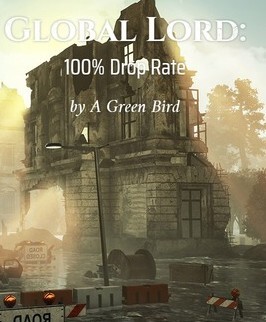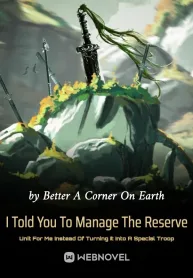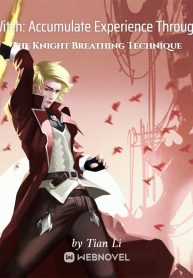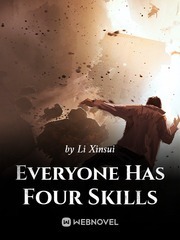Chapter 346
Generally speaking, when it comes to the imperial capital Chess Academy, it generally refers to the imperial capital Chess Academy.
This is the holy land of all chess players. In addition to undertaking the task of training new chess players for the motherland, various go competitions are often held here.
From the national players to the small chess players who have just entered the profession, they usually go in and out here.
Fang Ze originally thought that the youth group go game mentioned by Fang Ma was just an entertaining amateur game played by a group of little kids.
But after coming here, Fang Ze found that the children who competed here were young chess players who had just entered the profession and studied in the Chess Academy.
Most of these little chess players are about eleven or twelve years old. Although according to the regulations, the age limit for participating in the youth group competition is under 20 years old, it is difficult to find a 15-year-old here.
This is because the go level is divided into three categories: level, amateur and professional.
The level is generally from entry-level to primary level, and the highest level is level 1, while players above level 3 can participate in the Amateur Go qualifying match.
Amateur stages can be divided into one to eight stages, eight of which are not established in China. The only way to obtain them is for the champion of the World Amateur Go Championship to apply to the neon Chess Academy for award.
However, even for the seventh paragraph, the threshold for obtaining is also very high. Only the champion of domestic Amateur Go competition can apply.
However, those who are more than five amateur segments and under the age of 15 can apply for the qualification of the national professional segment competition.
Well, you're right. An amateur go player must be under the age of 15 if he wants to be qualified to participate in a professional top game.
In the go world, there is a saying that 'if you don't become a national player at the age of 20, you will have no hope for life.'
If a person is not famous in go before the age of 20, then he is basically not qualified for this.
The reason is that go is a kind of chess that requires not only great talent, but also hard work to make a little famous.
If a person wants to become a national player, he must be nailed in front of the chessboard every day for at least six hours from the age of at least eight.
Of course, this is only the most basic. In addition to hard work, go also requires players to have far more talent than ordinary people.
Although no matter which industry, talent is the ultimate. After all, only those who have really worked hard can understand the importance of talent. But the go world's demanding on talent is even more abnormal.
In other industries, although a talented person can occupy a little advantage, a slightly less talented person can narrow the gap through hard work.
But go is different. On the premise of solid basic skills, talent can do whatever it wants.
For example, the famous chess player, Mr. Wu Qingyuan, the chess saint, downgraded all the neon super first-class chess players by himself, and unscrupulously brushed scores in the neon chess world, just like a college student who went to kindergarten to become a school bully.
At that time, the neon go industry was strong and there were many famous players, but even if these players worked hard, they still couldn't beat Wu Qingyuan.
For example, Mugu Daochang, founded by Mugu Shi of benyinfang, was called the largest sect in the world in that year, and was a guru in the neon go world in that year.
But it was such a great God who played ten moves with old Mr. Wu Qingyuan until he fell on the spot with nosebleed. But he was still run over by Mr. Wu.
It can be seen that in the industry of go, a person's talent determines where a person can go.
And what's more terrifying is that the go world not only depends on talent, but also on young skills.
A chess player who wants to make achievements in the professional field of go must learn go from a very young age. After the age of 15, he began to learn modern go, and became a professional player. There is no player who has won the place in the competition in China so far.
The most inspiring example is that Liu Xiaoguang Jiuduan began to learn go at the age of 13 and became a famous chess player.
Therefore, even though the children who are playing in front of Fang Ze are at the age of primary school, they can crush most adult amateur chess players outside in terms of chess ability.
Just when Fang Ze turned to a corner and was ready to stop and take a lazy rest, he suddenly heard a neon language ringing around him.
"Hello, can you excuse me?"
Fang Ze turned his head and found two children who looked only eleven or twelve years old.
One of the children has yellow hair, and the other has black hair, but it looks very neutral, so Fang Ze can't tell whether it's Zhengtai or Lori for a while.
It was the Yellow haired child who spoke to Fang Ze. While speaking Japanese, he used broken English and sign language to help Fang Ze understand what he said.
"Excuse me, where is a restaurant near here?"
"Are you hungry?" Fang Ze had seen these two children before, but they were both playing chess at that time. Fang Ze thought they were children in the chess yard. Now it seems that they should be foreign friends coming to the game. So he communicated with the two children in neon language.
"Yes, yes, because it's time for dinner." The Yellow haired child was immediately excited after hearing Fang Ze's words.
"Good standard neon language. Brother, are you a compatriot working in China?"
"No, I'm Chinese." Fang Ze said to the two children as he spoke, "come with me and I'll take you to the restaurant."
"Thank you so much." The two children thanked Fang Ze together. "Because our leader doesn't know where he has gone, we don't know who to ask. When we see you wearing work clothes, we come."
"Are you two professional players of neon?" Fang Ze asked curiously, "it's hard to race so far."
"Not hard." The Yellow haired child said, "it's a lucky thing to come here and compete with so many chess players of the same age. It's hard to have this opportunity in China."
The phrase "it's hard to have this opportunity in neon" said by the Yellow haired child is not polite, but there is a big gap between neon's young professional chess players and Chinese young professional chess players.
Now the go system is made by neon, which is hardly controversial.
In the process of the development of modern go, the neon go industry abolished the seat system and the return head, which made the start of go more free and changeable, and laid the foundation of the layout theory of modern go.
The establishment of the stage system and the clarification of the grade difference and promotion rules of each stage is equivalent to the establishment of the professional title system of go.
Ultimately, the neon go industry has established a close eye system after World War II, which is a prerequisite for the modern go competition system. So there is a saying that Huaxia is the biological mother of go and neon is the adoptive mother of go. In fact, there is nothing wrong with it.
But even if neon has made so many contributions to modern go, the gradual decline of neon go is an indisputable fact.
In the period of reform and opening up in China, the neon go industry can almost crush the Chinese go industry in an all-round way, but with the development.
With the school-based talent training system, the Chinese go industry and the South stick go industry are gradually rising, but the neon go industry has been easily overtaken by the Chinese and South stick because of the ancient apprenticeship training system, which has led to the generation of talents.
Fang Ze took them to the restaurant in the chess court and introduced the Chinese cuisine in the restaurant to the two children from neon.
"This sounds delicious." After discussing, the two children chose braised chicken and rice.
Just at this moment, Fang Ze was also a little hungry, so he ordered one for himself, and the three sat together for dinner.
"What are your two names?" After Fang Ze asked, he also said his name by the way, "my name is Fang Ze."
"My name is Kato." Said the Yellow haired child.
"My name is Tashi Liang." The child who couldn't tell Zhengtai from Lori also sat down and introduced himself.
Judging from the sound, it should be xiaozhengtai.
"At such a young age, I became a professional chess player. Your teachers should be very famous."
"I am self-taught." Jintengguang said, pointing to Tashi Liang, "Tashi Liang learned chess from his father."
"Self taught!" Fang Ze looked at Jin tengguang and was a little surprised.
As I said before, the way to cultivate new people in neon go is still the ancient apprenticeship system.
In neon, if a chess player feels that his chess power begins to decline and he is unable to strive for results, he will start to accept players.
Generally, the source of apprentices is either found by themselves or recommended by others.
Once the apprentice is accepted, the apprentice will leave his parents and live in the master's home. He will follow the master to study, eat, live and live. All the expenses incurred during this period are borne by the master. After graduation, disciples will give part of their income to master.
This is the so-called inner disciple system. The crosstalk world in China used to be this kind of inheritance method, so there are reasons for the decline of crosstalk world year by year.
In Huaxia, the Chess Academy has teachers who are specially responsible for guiding small chess players to play chess, teachers who specialize in training basic skills of death and life, and teachers who specialize in layout and setting.
In neon, all this was done by master alone.
Therefore, Jin tengguang said that he was a self-taught professional small chess player, which would make Fang Ze feel incredible.
This talent is probably comparable to or even better than the rhythm of chess sage Wu Qingyuan.
After all, the reason why neon go had six Super first-class players in those days was that these six players all had a common teacher, Mu Yushi.
It can be seen that in the neon go world, a good teacher has an impact on chess players.
And in front of this little chess player called Jin tengguang, he even said that he was self-taught, which is really quite terrible.
The three chatted for a while, and Fang Ze finished his meal with Teng Guang and Tashi Liang.
He glanced at his wristwatch and said to the two children, "I have something to leave for a while. If you need any help, you can wait for me in the hall."
"Thank you." Two neon children thanked Fang Ze together.
"The guest should come at this point." Fang Ze went to a place where there was basically no one, and looked around, hoping to find the guests who came this week in time.
He is really curious now. If the guest is indeed a young Tang monk, will he live forever if he eats a bite of his meat himself.
This is the holy land of all chess players. In addition to undertaking the task of training new chess players for the motherland, various go competitions are often held here.
From the national players to the small chess players who have just entered the profession, they usually go in and out here.
Fang Ze originally thought that the youth group go game mentioned by Fang Ma was just an entertaining amateur game played by a group of little kids.
But after coming here, Fang Ze found that the children who competed here were young chess players who had just entered the profession and studied in the Chess Academy.
Most of these little chess players are about eleven or twelve years old. Although according to the regulations, the age limit for participating in the youth group competition is under 20 years old, it is difficult to find a 15-year-old here.
This is because the go level is divided into three categories: level, amateur and professional.
The level is generally from entry-level to primary level, and the highest level is level 1, while players above level 3 can participate in the Amateur Go qualifying match.
Amateur stages can be divided into one to eight stages, eight of which are not established in China. The only way to obtain them is for the champion of the World Amateur Go Championship to apply to the neon Chess Academy for award.
However, even for the seventh paragraph, the threshold for obtaining is also very high. Only the champion of domestic Amateur Go competition can apply.
However, those who are more than five amateur segments and under the age of 15 can apply for the qualification of the national professional segment competition.
Well, you're right. An amateur go player must be under the age of 15 if he wants to be qualified to participate in a professional top game.
In the go world, there is a saying that 'if you don't become a national player at the age of 20, you will have no hope for life.'
If a person is not famous in go before the age of 20, then he is basically not qualified for this.
The reason is that go is a kind of chess that requires not only great talent, but also hard work to make a little famous.
If a person wants to become a national player, he must be nailed in front of the chessboard every day for at least six hours from the age of at least eight.
Of course, this is only the most basic. In addition to hard work, go also requires players to have far more talent than ordinary people.
Although no matter which industry, talent is the ultimate. After all, only those who have really worked hard can understand the importance of talent. But the go world's demanding on talent is even more abnormal.
In other industries, although a talented person can occupy a little advantage, a slightly less talented person can narrow the gap through hard work.
But go is different. On the premise of solid basic skills, talent can do whatever it wants.
For example, the famous chess player, Mr. Wu Qingyuan, the chess saint, downgraded all the neon super first-class chess players by himself, and unscrupulously brushed scores in the neon chess world, just like a college student who went to kindergarten to become a school bully.
At that time, the neon go industry was strong and there were many famous players, but even if these players worked hard, they still couldn't beat Wu Qingyuan.
For example, Mugu Daochang, founded by Mugu Shi of benyinfang, was called the largest sect in the world in that year, and was a guru in the neon go world in that year.
But it was such a great God who played ten moves with old Mr. Wu Qingyuan until he fell on the spot with nosebleed. But he was still run over by Mr. Wu.
It can be seen that in the industry of go, a person's talent determines where a person can go.
And what's more terrifying is that the go world not only depends on talent, but also on young skills.
A chess player who wants to make achievements in the professional field of go must learn go from a very young age. After the age of 15, he began to learn modern go, and became a professional player. There is no player who has won the place in the competition in China so far.
The most inspiring example is that Liu Xiaoguang Jiuduan began to learn go at the age of 13 and became a famous chess player.
Therefore, even though the children who are playing in front of Fang Ze are at the age of primary school, they can crush most adult amateur chess players outside in terms of chess ability.
Just when Fang Ze turned to a corner and was ready to stop and take a lazy rest, he suddenly heard a neon language ringing around him.
"Hello, can you excuse me?"
Fang Ze turned his head and found two children who looked only eleven or twelve years old.
One of the children has yellow hair, and the other has black hair, but it looks very neutral, so Fang Ze can't tell whether it's Zhengtai or Lori for a while.
It was the Yellow haired child who spoke to Fang Ze. While speaking Japanese, he used broken English and sign language to help Fang Ze understand what he said.
"Excuse me, where is a restaurant near here?"
"Are you hungry?" Fang Ze had seen these two children before, but they were both playing chess at that time. Fang Ze thought they were children in the chess yard. Now it seems that they should be foreign friends coming to the game. So he communicated with the two children in neon language.
"Yes, yes, because it's time for dinner." The Yellow haired child was immediately excited after hearing Fang Ze's words.
"Good standard neon language. Brother, are you a compatriot working in China?"
"No, I'm Chinese." Fang Ze said to the two children as he spoke, "come with me and I'll take you to the restaurant."
"Thank you so much." The two children thanked Fang Ze together. "Because our leader doesn't know where he has gone, we don't know who to ask. When we see you wearing work clothes, we come."
"Are you two professional players of neon?" Fang Ze asked curiously, "it's hard to race so far."
"Not hard." The Yellow haired child said, "it's a lucky thing to come here and compete with so many chess players of the same age. It's hard to have this opportunity in China."
The phrase "it's hard to have this opportunity in neon" said by the Yellow haired child is not polite, but there is a big gap between neon's young professional chess players and Chinese young professional chess players.
Now the go system is made by neon, which is hardly controversial.
In the process of the development of modern go, the neon go industry abolished the seat system and the return head, which made the start of go more free and changeable, and laid the foundation of the layout theory of modern go.
The establishment of the stage system and the clarification of the grade difference and promotion rules of each stage is equivalent to the establishment of the professional title system of go.
Ultimately, the neon go industry has established a close eye system after World War II, which is a prerequisite for the modern go competition system. So there is a saying that Huaxia is the biological mother of go and neon is the adoptive mother of go. In fact, there is nothing wrong with it.
But even if neon has made so many contributions to modern go, the gradual decline of neon go is an indisputable fact.
In the period of reform and opening up in China, the neon go industry can almost crush the Chinese go industry in an all-round way, but with the development.
With the school-based talent training system, the Chinese go industry and the South stick go industry are gradually rising, but the neon go industry has been easily overtaken by the Chinese and South stick because of the ancient apprenticeship training system, which has led to the generation of talents.
Fang Ze took them to the restaurant in the chess court and introduced the Chinese cuisine in the restaurant to the two children from neon.
"This sounds delicious." After discussing, the two children chose braised chicken and rice.
Just at this moment, Fang Ze was also a little hungry, so he ordered one for himself, and the three sat together for dinner.
"What are your two names?" After Fang Ze asked, he also said his name by the way, "my name is Fang Ze."
"My name is Kato." Said the Yellow haired child.
"My name is Tashi Liang." The child who couldn't tell Zhengtai from Lori also sat down and introduced himself.
Judging from the sound, it should be xiaozhengtai.
"At such a young age, I became a professional chess player. Your teachers should be very famous."
"I am self-taught." Jintengguang said, pointing to Tashi Liang, "Tashi Liang learned chess from his father."
"Self taught!" Fang Ze looked at Jin tengguang and was a little surprised.
As I said before, the way to cultivate new people in neon go is still the ancient apprenticeship system.
In neon, if a chess player feels that his chess power begins to decline and he is unable to strive for results, he will start to accept players.
Generally, the source of apprentices is either found by themselves or recommended by others.
Once the apprentice is accepted, the apprentice will leave his parents and live in the master's home. He will follow the master to study, eat, live and live. All the expenses incurred during this period are borne by the master. After graduation, disciples will give part of their income to master.
This is the so-called inner disciple system. The crosstalk world in China used to be this kind of inheritance method, so there are reasons for the decline of crosstalk world year by year.
In Huaxia, the Chess Academy has teachers who are specially responsible for guiding small chess players to play chess, teachers who specialize in training basic skills of death and life, and teachers who specialize in layout and setting.
In neon, all this was done by master alone.
Therefore, Jin tengguang said that he was a self-taught professional small chess player, which would make Fang Ze feel incredible.
This talent is probably comparable to or even better than the rhythm of chess sage Wu Qingyuan.
After all, the reason why neon go had six Super first-class players in those days was that these six players all had a common teacher, Mu Yushi.
It can be seen that in the neon go world, a good teacher has an impact on chess players.
And in front of this little chess player called Jin tengguang, he even said that he was self-taught, which is really quite terrible.
The three chatted for a while, and Fang Ze finished his meal with Teng Guang and Tashi Liang.
He glanced at his wristwatch and said to the two children, "I have something to leave for a while. If you need any help, you can wait for me in the hall."
"Thank you." Two neon children thanked Fang Ze together.
"The guest should come at this point." Fang Ze went to a place where there was basically no one, and looked around, hoping to find the guests who came this week in time.
He is really curious now. If the guest is indeed a young Tang monk, will he live forever if he eats a bite of his meat himself.







